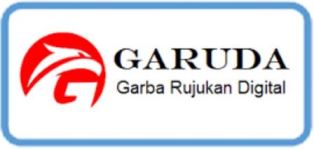Studi Meta Analisis: Pengaruh Problem Based Learning Terhadap Hasil Belajar
 ), Ambiyar Ambiyar(2), Muhammad Giatman(3), Wakhinuddin Simatupang(4), Nurhasan Syah(5),
), Ambiyar Ambiyar(2), Muhammad Giatman(3), Wakhinuddin Simatupang(4), Nurhasan Syah(5), (1) Universitas Negeri Padang
(2) Universitas Negeri Padang
(3) Universitas Negeri Padang
(4)
(5) Universitas Negeri Padang
 Corresponding Author
Corresponding Author
DOI : https://doi.org/10.24036/voteteknika.v10i2.118136
Full Text:
 Language : en
Language : en
Abstract
Penelitian ini bertujuan untuk mendeskripsikan penggunaan metode pembelajaran problem based learning terhadap hasil belajar melalui metode meta analisis Data post test didokumentasikan dari 25 artikel nasional dan internasional, yang membahas perbandingan pembelajaran berbasis masalah dengan pembelajaran konvensional, dianalisis secara kuantitatif. Data yang dikumpulkan berupa data post test untuk kelas eksperimen dan kelas kontrol. Perhitungan dilakukan dengan menggunakan rumus ukuran efek (ES). Rata-rata kelas eksperimen adalah 71,84 dan rata-rata kelas kontrol adalah 57,33 dan standar deviasi (SD) adalah 13,33. Hasil perhitungan effect size (ES) sebesar 1,05 berpengaruh tinggi terhadap hasil belajar siswa. Dalam penelitian meta analisis ini, pembelajaran berbasis masalah memiliki kontribusi yang sangat positif untuk mendorong siswa meningkatkan hasil belajar dan berpikir kreatif sesuai dengan keterampilan abad 21.
Kata Kunci : Problem Based Learning, Hasil Belajar, Meta-analisis, Effect Size
This study aims to describe the use of problem based learning learning methods on learning outcomes through the meta-analysis method. Post test data is documented from 25 national and international articles, which discuss the comparison of problem based learning with conventional learning, analyzed quantitatively. The data collected in the form of post test data for the experimental class and the control class. Calculations were performed using the effect size (ES) formula. The experimental class average was 71.84 and the control class average was 57.33 and the standard deviation (SD) was 13.33. The result of calculating the effect size (ES) of 1.05 has a high effect on student learning outcomes. In this meta-analysis study, problem based learning has a very positive contribution to encourage students to improve learning outcomes and think creatively in accordance with 21st century skills.
Keywords : Problem Based Learning, Learning Outcomes, Meta-analysis, Effect Size
References
F. M. Esteve-mon, M. A. Llopis, and J. Adell-segura, “Digital Competence and Computational Thinking of Student Teachers,” vol. 15, no. 2, pp. 29–41, 2020.
R. P. Yaniawati, “E-Learning to Improve Higher Order Thinking Skills (HOTS) of Students,” J. Educ. Learn., vol. 7, no. 2, p. 109, 2013, doi: 10.11591/edulearn.v7i2.225.
A. H. Wahid and R. A. Karimah, “Integrasi High Order Thinking Skill (HOTS) dengan Model Creative Problem Solving,” Model. J. Progr. Stud. PGMI, vol. 5, no. 1, pp. 82–98, 2018, [Online]. Available: http://jurnal.stitnualhikmah.ac.id/index.php/modeling/article/view/161.
M. M. Nurzaelani and M. Septiani, “Pengembangan Modul Elektronik Hypercontent Berbasis Higher Order Thinking Skill (HOTs),” Pros. Lppm Uika …, pp. 171–184, 2020, [Online]. Available: http://pkm.uika-bogor.ac.id/index.php/prosiding/article/view/642.
H. Anggraeni, S. Rahayu, and I. Zajuli Ichsan, “PENGARUH RECIPROCAL TEACHING DAN PROBLEM BASED LEARNING TERHADAP KEMAMPUAN BERPIKIR KRITIS PESERTA DIDIK SMA PADA MATERI SISTEM REPRODUKSI The Effect of Reciprocal Teaching and Problem Based Learning to The Critical Thinking of Senior High School Students,” Biota J. Biol. dan Pendidik. Biol. S3, pp. 11–12, 2018, [Online]. Available: https://www.biota.ac.id/index.php/jb/article/view/84.
N. Tastanbekova, B. Abenova, M. Yessekeshova, Z. Sagaliyeva, and G. Abildina, “Development of Professional Skills in the Context of Higher School Dual Education,” vol. 16, no. 10, pp. 179–193, 2021.
A. Naim, F. Alahmari, and S. Arabia, “Reference Model of E-learning and Quality to Establish Interoperability in Higher Education Systems,” vol. 15, no. 2, pp. 15–28, 2020.
Y. Liang, “Intelligent Emotion Evaluation Method of Classroom Teaching Based on Expression Recognition State of the Art,” vol. 14, no. 4, pp. 127–141, 2019.
Sumarmi, S. Bachri, L. Y. Irawan, D. B. P. Putra, Risnani, and M. Aliman, “The effect of experiential learning models on high school students learning scores and disaster countermeasures education abilities,” J. Educ. Gift. Young Sci., vol. 8, no. 1, pp. 61–85, 2020, doi: 10.17478/jegys.635632.
A. S. Aldossari, “Vision 2030 and reducing the stigma of vocational and technical training among Saudi Arabian students,” Empir. Res. Vocat. Educ. Train., vol. 12, no. 1, 2020, doi: 10.1186/s40461-020-00089-6.
V. Y. Hikmawati and Y. Suryaningsih, “Implementing blended-problem based learning through Google classroom in biology learning,” JPBI (Jurnal Pendidik. Biol. Indones., vol. 6, no. 2, pp. 217–224, 2020, doi: 10.22219/jpbi.v6i2.12112.
S. Tan, L. Zou, T. T. Wijaya, and N. S. S. Dewi, “Improving Student Creative Thinking Ability With Problem Based Learning Approach Using Hawgent Dynamic Mathematics Software,” J. Educ., vol. 2, no. 4, pp. 303–312, 2020, doi: 10.31004/joe.v2i4.324.
N. Susanti, D. Juandi, and M. Tamur, “The Effect of Problem-Based Learning (PBL) Model On Mathematical Communication Skills of Junior High School Students – A Meta-Analysis Study,” JTAM (Jurnal Teor. dan Apl. Mat., vol. 4, no. 2, p. 145, 2020, doi: 10.31764/jtam.v4i2.2481.
Aprianti and N. Kesumawati, “Pengaruh Model Auditory Intellectual Repetition terhadap Kemampuan Pemecahan Masalah Ditinjau dari Disposisi Matematis di SMP [The Effect of Auditory Intellectual Repetition Model on Problem Solving Ability in terms of Mathematical Disposition in Junior H,” J. Pendidik. Mat. RAFA, vol. 5, no. 1, pp. 10–21, 2019.
N. Hasanah, D. Hasruddin, and A. Yus, “The Effect of Problem Based Learning Model on Students Science Process Skills,” vol. 8, no. 1, 2018, doi: 10.2991/aisteel-18.2018.80.
W. Y. Silviariza, Sumarmi, and B. Handoyo, “Using of Spatial Problem Based Learning (SPBL) model in geography education for developing critical thinking skills,” J. Educ. Gift. Young Sci., vol. 8, no. 3, pp. 1045–1060, 2020, doi: 10.17478/JEGYS.737219.
N. Khoiriyah, A. Abdurrahman, and I. Wahyudi, “Implementasi pendekatan pembelajaran STEM untuk meningkatkan kemampuan berpikir kritis siswa SMA pada materi gelombang bunyi,” J. Ris. dan Kaji. Pendidik. Fis., vol. 5, no. 2, p. 53, 2018, doi: 10.12928/jrkpf.v5i2.9977.
R. Diani, Y. Yuberti, and S. Syafitri, “Uji Effect Size Model Pembelajaran Scramble dengan Media Video Terhadap Hasil Belajar Fisika Peserta Didik Kelas X MAN 1 Pesisir Barat,” J. Ilm. Pendidik. Fis. Al-Biruni, vol. 5, no. 2, pp. 265–275, 2016, doi: 10.24042/jpifalbiruni.v5i2.126.
A. Septian and R. Rizkiandi, “Penerapan Model Problem Based Learning (Pbl) Terhadap Peningkatan Kemampuan Berpikir Kreatif Matematis Siswa,” Prisma, vol. 6, no. 1, pp. 1–8, 2017, doi: 10.35194/jp.v6i1.22.
Y. C. Winoto and T. Prasetyo, “Efektivitas Model Problem Based Learning Dan Discovery Learning Terhadap Kemampuan Berpikir Kritis Siswa Sekolah Dasar,” J. Basicedu, vol. 4, no. 2, pp. 228–238, 2020, doi: 10.31004/basicedu.v4i2.348.
I. Al-Fikry, Y. Yusrizal, and M. Syukri, “Pengaruh Model Problem Based Learning Terhadap Kemampuan Berpikir Kritis Peserta Didik Pada Materi Kalor,” J. Pendidik. Sains Indones., vol. 6, no. 1, pp. 17–23, 2018, doi: 10.24815/jpsi.v6i1.10776.
A. Elizabeth and M. M. Sigahitong, “Pengaruh Model Problem Based Learning Terhadap Kemampuan Berpikir Kreatif Peserta Didik SMA,” Prism. Sains J. Pengkaj. Ilmu dan Pembelajaran Mat. dan IPA IKIP Mataram, vol. 6, no. 2, p. 66, 2018, doi: 10.33394/j-ps.v6i2.1044.
R. Hartati and H. Sholihin, “Meningkatkan Kemampuan Berpikir Kritis Siswa Melalui Implementasi Model Problem Based Learning ( PBL ) Pada Pembelajaran IPA Terpadu Siswa SMP,” Pros. Simp. Nas. Inov. dan Pembelajaran Sains, vol. 2015, no. Snips, pp. 1–5, 2015, [Online]. Available: http://www.academia.edu/download/49573147/EDU_133_-__RISA_HARTATI_-_Rev.pdf.
E. B. Tarigan, E. J. Simarmata, A. R. Abi, and D. S. Tanjung, “Peningkatan Hasil Belajar Siswa dengan Menggunakan Model Problem Based Learning pada Pembelajaran Tematik,” Edukatif J. Ilmu Pendidik., vol. 3, no. 4, pp. 2294–2304, 2021.
R. Ramadhani, R. Umam, A. Abdurrahman, and M. Syazali, “The effect of flipped-problem based learning model integrated with LMS-google classroom for senior high school students,” J. Educ. Gift. Young Sci., vol. 7, no. 2, pp. 137–158, 2019, doi: 10.17478/jegys.548350.
H. S. Arief and A. Sudin, “Meningkatkan Motivasi Belajar Melalui Pendekatan Problem-Based Learning (Pbl),” Meningkat. Motiv. Belajar Melalui Pendekatan Probl. Learn., vol. 1, no. 1, pp. 141–150, 2016, doi: 10.23819/pi.v1i1.2945.
I. A. Nugroho and M. Chotim, “Keefektifan Pendekatan Problem Based Learning Terhadap Kemampuan Berpikir Kreatif Matematik,” Unnes J. Math. Educ., vol. 2, no. 1, 2013, doi: 10.15294/ujme.v2i1.3319.
M. Menap, F. Bayani, and S. Prayogi, “Problem-Based Learning in Phytochemistry Courses: Its’ Effectiveness in Improving Medical Students’ Critical Thinking Ability Viewed from Cognitive Style,” J. Penelit. Pendidik. IPA, vol. 7, no. SpecialIssue, pp. 118–125, 2021, doi: 10.29303/jppipa.v7ispecialissue.1124.
R. Abdurrozak and A. K. Jayadinata, “Pengaruh Model Problem Based Learning TerhadaAbdurrozak, R., & Jayadinata, A. K. (2016). Pengaruh Model Problem Based Learning Terhadap Kemampuan Berpikir Kreatif Siswa. Jurnal Pena Ilmiah, 1(1), 871–880. https://doi.org/10.23819/pi.v1i1.3580p Kemampuan B,” J. Pena Ilm., vol. 1, no. 1, pp. 871–880, 2016.
A. Farisi, A. Hamid, and P. Fisika, “| 283 Pengaruh Model Pembelajaran Problem Based Learning Terhadap Kemampuan Berpikir Kritis Dalam Meningkatkan Hasil Belajar Siswa Pada Konsep Suhu Dan Kalor,” pp. 283–287, 2017.
M. Nurtanto and H. Sofyan, “Implementasi Problem-Based Learning Untuk Meningkatkan Hasil Belajar Kognitif , Psikomotor , the Implementation of Problem-Based Learning To Improve Learning Outcomes of Cognitive , Psychomotor , and Affective of Students in,” J. Pendidik. Vokasi, vol. 5, no. November 2015, pp. 352–364, 2015.
K. D. Pareira Meke, M. T. Sero Wondo, and D. U. Wutsqa, “Pembelajaran Problem Based Learning Dengan Penggunaan Bahan Manipulatif Ditinjau Dari Minat Belajar Matematika,” J. Penelit. Pembelajaran Mat., vol. 13, pp. 164–177, 2020.
S. Sucirahayu, A. Halim, and N. Idris, “Penerapan Model Problem Based Learning (Pbl) Pada Konsep Usaha Dan Energi Untuk Meningkatkan Keterampilan Berpikir Kritis Dan Berpikir Kreatif Siswa Sma,” J. Pendidik. Sains Indones., vol. 3, no. 1, pp. 207–217, 2015.
J. Pendidikan et al., “Penerapan Model Problem Based Learning Pada Pembelajaran Materi Sistem Tata Surya Untuk Meningkatkan Hasil Belajar Siswa,” J. Pendidik. Sains Indones. (Indonesian J. Sci. Educ., vol. 5, no. 1, pp. 27–35, 2017.
R. Kono and H. D. Mamu, “PENGARUH MODEL PROBLEM BASED LEARNING ( PBL ) TERHADAP PEMAHAMAN KONSEP BIOLOGI DAN KETERAMPILAN BERPIKIR KRITIS SISWA TENTANG EKOSISTEM DAN LINGKUNGAN DI KELAS X SMA NEGERI 1 SIGI,” no. 4.
M. A. Saputri and T. S. Rahayu, “Efektivitas Model Problem Based Learning dan Discovery Learning terhadap Berfikir Kritis pada Pembelajaran Matematika: Kajian Meta-Analisis,” Fondatia, vol. 5, no. 1, pp. 85–94, 2021, doi: 10.36088/fondatia.v5i1.1102.
B. Saputro, M. Saerozi, J. Siswanta, J. Siswanto, and A. T. Susilowati, “Validation of learning management system (LMS) of e-problem-based learning based on scientific communication skill and plagiarism checker.,” Technol. Reports Kansai Univ., vol. 62, no. 06, pp. 3097–3113, 2020, [Online]. Available: https://smallseotools.com/plagiarism-checker/.
A. S. N. D. D. Harianti, “Model Pembelajaran Project Based Learning,” Ekp, vol. 13, no. 3, pp. 1576–1580, 2015, [Online]. Available: https://sibatik.kemdikbud.go.id/inovatif/assets/file_upload/pengantar/pdf/pengantar_5.pdf.
R. W. Akhdinirwanto, R. Agustini, and B. Jatmiko, “Problem-based learning with argumentation as a hypothetical model to increase the critical thinking skills for junior high school students,” J. Pendidik. IPA Indones., vol. 9, no. 3, pp. 340–350, 2020, doi: 10.15294/jpii.v9i3.19282.
M. Astuti, “The Effect of Problem-Based Learning and Level Intelligence of Students’ Critical Thinking on Kalamm Science,” Ta’dib, vol. 21, no. 2, p. 155, 2016, doi: 10.19109/td.v21i2.951.
Mundilarto and H. Ismoyo, “Effect of problem-based learning on improvement physics achievement and critical thinking of senior high school student,” J. Balt. Sci. Educ., vol. 16, no. 5, pp. 761–779, 2017, doi: 10.33225/jbse/17.16.761.
S. Amin, S. Utaya, S. Bachri, Sumarmi, and S. Susilo, “Effect of problem-based learning on critical thinking skills and environmental attitude,” J. Educ. Gift. Young Sci., vol. 8, no. 2, pp. 743–755, 2020, doi: 10.17478/jegys.650344.
H. Mulyanto, G. Gunarhadi, and M. Indriayu, “The Effect of Problem Based Learning Model on Student Mathematics Learning Outcomes Viewed from Critical Thinking Skills,” Int. J. Educ. Res. Rev., vol. 3, no. 2, pp. 37–45, 2018, doi: 10.24331/ijere.408454.
 Article Metrics
Article Metrics
 Abstract Views : 503 times
Abstract Views : 503 times
 PDF Downloaded : 127 times
PDF Downloaded : 127 times
Refbacks
- There are currently no refbacks.

This work is licensed under a Creative Commons Attribution-ShareAlike 4.0 International License.



.png)


.jpg)




